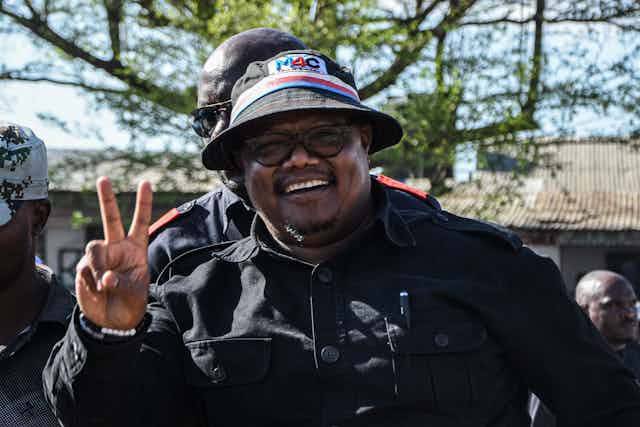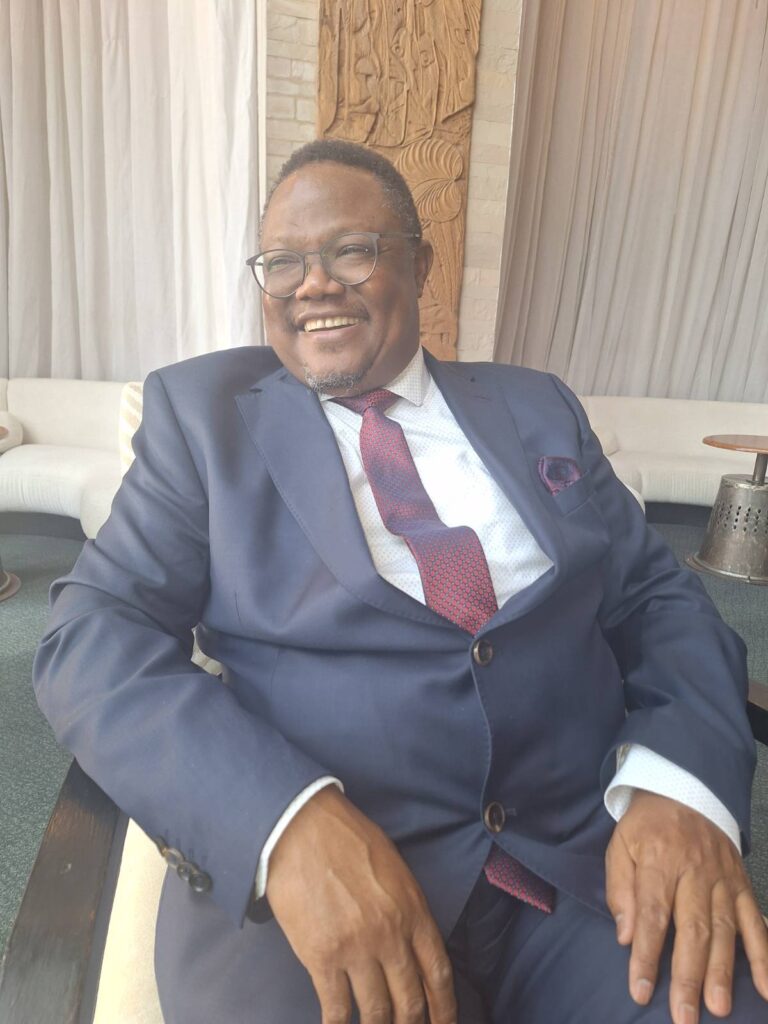Tundu Lissu, a presidential candidate in Tanzania and the vice-chairperson of Chadema, the major opposition party, spent three years in exile in Belgium after an attempt to kill him in 2017. He is limping now and during the interview in Nairobi Lissu had a specially constructed shoe for walking. The Africanists talked to him, posing questions regarding his thoughts on the current political landscape in Tanzania.
Why has the youthful Gen Z movement emerged in Kenya but not yet in Tanzania?
If revolutions can be exported, one might pose such a question. However, it is important to note that the situations in both countries are not directly comparable. Tanzania’s journey began as a one-party state, solidifying this status just four years after gaining independence. There was no significant opposition from the outset. This lack of a tradition or history of independent political thought and action distinguishes Tanzania from Kenya. Since 1962, after gaining independence, we have been politically stifled.
However revolutions are made by young people. W.E.B. Du Bois once said that “the youth are courageous because they know less.” They can be heroes. You don’t have any, an old man being a hero. I think had Mandela been jailed in his 80s, he would have compromised immediately with the regime. But young people are courageous. So it is a question of demographics in that sense. Historically, significant social and political movements have always been influenced by the youth. They are the ones who sacrifice and bring down oppressive systems.
So what is the major force for change in your country?
It will be the young people. They are not there yet. They think somebody else will do it for them. But their time will come.
But the opposition’s political energy has decreased. This year is significant as it’s an election year, with local elections in November and general elections next year. However, we don’t see the usual political excitement that comes with an election year. This situation is different from 2019-2020 when people were still engaged with former president Magufuli, and it’s certainly not like 2014-2015.
It seems that the political parties have lost their momentum. When president Samia took office after the death of Magufuli, the leader of the opposition was arrested within months on serious charges, which stirred the nation like never before. This event gave us a strong push. It set off a chain of events that revealed deeper issues within the system. Today, we might be discussing things very differently if those eight months of the opposition leader’s imprisonment hadn’t occurred.
The country, once politically charged due to the unjust imprisonment of the opposition leader, now seems to embrace a message of unity and affection with the very president who had imprisoned him. This raises questions about trust. We seem to have lost that trust, and without it, we cannot effectively lead a population that lacks faith in its leaders. Unless we rebuild that trust, the vibrant energy we had up until March 2020 will remain diminished.

But after your exile in Belgium you came back and trusted the new president Samia as well.
We gave Samia the benefit of the doubt, which was a mistake. We did this partly because of her early promises and partly because we wanted to believe that the difficult times were over. The naive part was our psychological need to hold onto that belief. However, aside from her statements and promises, there was no real action or progress in decision-making or legislation. In fact, it seemed like she was just stalling, gathering support to strengthen her position. There were clear signs of this, and I, along with others, spoke out. I realized quickly that we were being misled. I voiced my concerns just weeks after returning. I attended two key meetings with Samia, and after those, I was convinced we were being deceived.
What kind of reforms are needed in Tanzania?
We discuss various types of reform, including constitutional and electoral changes, but there has been no real action on legislative reform. Samia is following the same approach as Magufuli, maintaining the same policies. Remember, she was Magufuli’s vice president, so she is essentially continuing his legacy. She is building on what Magufuli started.
Our constitution and political practices show that we have not moved away from being a one-party system. So, what does this mean? The key features of a one-party dictatorship include a strong presidency. It’s not accurate to say that the ruling party makes decisions; rather, decisions come from the state house, made by the president, and then dressed up as party decisions. All power resides in the state house; it has always been concentrated there.
The Tanzanian president resembles an 18th-century European monarch. The power of the president is vast and largely unchecked. The president embodies the state, as the government is centered around the president. The real authority lies with the president, the establishment, and the security services.
What will happen in the near future?
There is a growing awareness of the misuse of power and corruption that we haven’t seen before. In Tanzania, young people are not experiencing a better quality of life, and the overall situation is dire. We’ve faced tough times before, but hardship alone doesn’t drive people to protest. It must be paired with political engagement and action that inspires the nation. This kind of leadership must be pure and completely trustworthy.
I believe the issue lies here. If there is a youth uprising, they might criticize the opposition parties just as much. Yes, that’s true. If they take to the streets, it won’t be because of us; it will be in spite of us.


